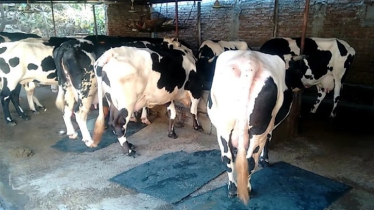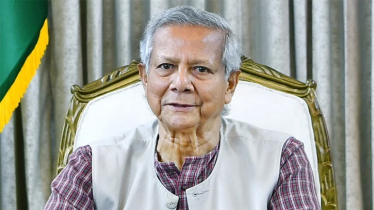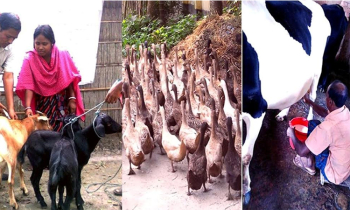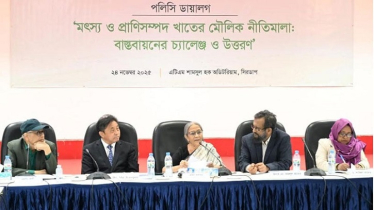
Fisheries and Livestock Adviser Farida Akhter has warned that the uncontrolled use of antibiotics is creating a severe crisis across the country’s health, livestock, fisheries and even agriculture sectors. She said that without preventive practices, strong regulatory mechanisms and enhanced One Health collaboration, it will be impossible to tackle the growing threat of antimicrobial resistance (AMR). She emphasized the need for immediate integrated preventive measures.
She made these remarks on Sunday morning while addressing the Multi-Sectoral One Health AMR Seminar held at Hotel Westin in the capital, organized to mark World Antimicrobial Resistance Awareness Week 2025.
The adviser noted that although the recent 5.7 magnitude earthquake caused public panic, the excessive and irrational use of antibiotics poses an even greater and more lasting threat. Citing data presented at the seminar, she said the antibiotic resistance rate in Bangladesh has already reached 94 percent, which she described as extremely alarming. She added that antibiotic use in the poultry sector stands at 76.9 percent, directly affecting human health and the environment.
She warned that while the damage from an earthquake occurs in a single moment, the impact of antibiotic resistance is long-lasting and puts future generations at serious risk. She pointed out that many rural communities still believe that a doctor is better if they give injections, and the best doctor is the one who prescribes antibiotics. Parents often demand antibiotics for their children if fevers do not subside, and even 11-month-old infants are becoming resistant, which she described as deeply concerning.
The adviser said that addressing AMR requires looking beyond human health alone. Animal, forest and wildlife health must all be protected, as food, animal health and human health are deeply interconnected. She stressed that antibiotic use across all animal species makes the One Health approach essential. She also stated that people must demand antibiotic-free chicken and antibiotic-free fish, and that social pressure and public awareness about safe food are among the most effective ways to combat resistance.
She added that AMR awareness cannot be limited to a single week. Continuous year-round campaigns involving educational institutions and observance of various days are necessary, and she noted the crucial role of the media in this regard.
Referring to her experience at the recent climate conference in Brazil, the adviser said that as global warming intensifies, the risks of new diseases and antimicrobial resistance also rise. She described climate change and AMR as two global crises that are closely interlinked and emphasized that addressing both challenges requires coordinated and well-planned action.
The seminar was chaired by Director General of the Department of Livestock Services Dr. Md. Abu Sufian. Special guests included FAO Bangladesh Country Representative Jiaoqun Shi, WHO Bangladesh Country Representative Ahmed Jamshed Mohammad, WOAH Regional Representative for Asia and the Pacific Dr. Hirofumi Kugita, Bangladesh Livestock Research Institute Director General Dr. Shakila Faruq and Additional Director General of the Directorate General of Health Services Professor Dr. Khayer Ahmed Chowdhury.
The welcome remarks were delivered by Dr. Begum Shamsun Nahar Ahmad, Director (Extension) of the Department of Livestock Services.
Presentations on the current AMR/AMU situation in the livestock sector were made by Dr. Md. Shaheenur Alam, Director of the Department of Livestock Services. Dr. Shamsad Rabbani, Deputy Program Manager of the Antimicrobial Resistance Containment Program at the CDC under the Directorate General of Health Services, presented the situation in the human health sector. The AMR/AMU status in the fisheries sector was presented by Md. Habib Forhad Alam, Assistant Director of the Department of Fisheries.
Senior officials from government and non-government organizations, university faculty members, livestock and poultry farmers and sectoral professionals attended the event.





